Liberia
U.S. President Donald Trump on Tuesday ordered an end to special legal status for certain immigrants from Liberia, including some who have lived in the United States for decades, citing improved conditions in the West African country.
The immigration status of Liberians was set to expire at midnight on March 31, 2018, and has now been extended to March 31, 2019.
“Liberia is no longer experiencing armed conflict and has made significant progress in restoring stability and democratic governance,” according to a memorandum signed by Trump and released by the White House.
Trump has pursued a crackdown on legal and illegal immigration since becoming president.
Some Liberians have been eligible for either Temporary Protected Status or Deferred Enforced Departure since March 1991 due to civil wars, fragile political and economic conditions and an Ebola virus outbreak in 2014, the memorandum said.
“Liberia has also concluded reconstruction from prior conflicts, which has contributed significantly to an environment that is able to handle adequately the return of its nationals,” Trump said.
“The 2014 outbreak of Ebola Virus Disease caused a tragic loss of life and economic damage to the country, but Liberia has made tremendous progress in its ability to diagnose and contain future outbreaks of the disease,” he said.
A 12-month “wind-down” period starting March 31, 2018, would allow the Liberian government to prepare to re-integrate returning citizens and give time for affected Liberians to “make necessary arrangements,” according to the memorandum, which was addressed to the Department of Homeland Security (DHS).
The Liberian Embassy in Washington did not immediately respond to a request for comment. DHS officials did not immediately respond to a request seeking numbers of those who will be affected.
Trump previously included three other African countries, Chad, Somalia and Libya, among several whose citizens were blocked from entering the United States.
Somalia’s frormer president Hassan Sheikh Mohamud became the highest profile public figure to be affected by the travel ban when his hosts in the United States cancelled planned lectures explaining that he had been denied a visa.
African politicians and diplomats blasted Trump in January after he was reported to have used vulgar language to describe African countries and Haiti, with some calling him a racist. Trump later denied making the remark.



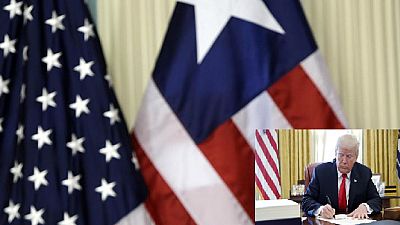

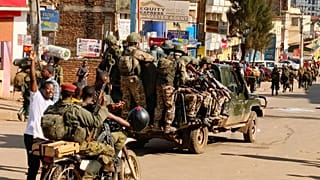
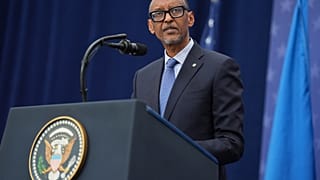
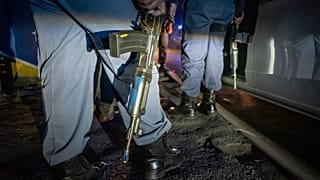
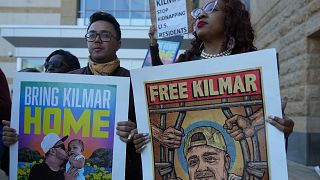
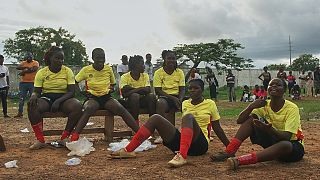

Go to video
FIFA awards US President Trump its first ever international peace prize
01:47
Somali migrant recounts torture in Libya but says hope for a better life still drives him
01:06
U.S. to widen travel ban to more than 30 countries
02:21
Trump praises leaders of Rwanda and DR Congo as they sign a peace deal
02:06
U.S. brokered Congo–Rwanda deal signed amid ongoing clashes in eastern DRC
01:09
US continues deporting migrants to Venezuela despite Trump threat